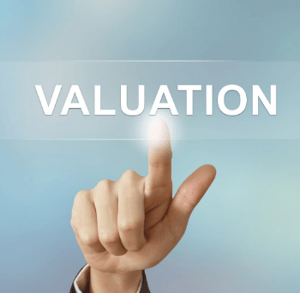Business Valuation Basics Every Owner Should Know
 As a business owner, your company is probably one of - if not the - most valuable assets you own. But figuring out its true worth can be tricky. Whatever your reason for wanting to assess your company’s financial value, a formal business valuation is the best way to go. Let’s take a look at some valuation basics.
As a business owner, your company is probably one of - if not the - most valuable assets you own. But figuring out its true worth can be tricky. Whatever your reason for wanting to assess your company’s financial value, a formal business valuation is the best way to go. Let’s take a look at some valuation basics.
When You Might Need a Business Valuation
There are many reasons why you might need to set a fair price for your company, including the ones listed here:
- Selling a business for divorce or estate tax purposes, or as part of your pre-planned exit strategy
- Gifting shares of your company to your children
- Establishing and managing an ESOP (Employee Stock Ownership Plan)
- Merging your company with another organization
- Pursuing a new business partner, shareholder, or financial investor
No matter the reason behind it, when the time is right for a business valuation, you should take steps to work with an experienced analyst.
Professional valuators are trained to assess the diverse factors that determine the worth of your company. Common designations in this field include Accredited Senior Appraiser, Certified Business Appraiser, and Certified Valuation Analyst.
How Does a Business Valuation Work?
In practice, business valuation is part research, part math, and part highly educated guess. There are several accepted business valuation methodologies to choose from. But a certain amount of professional judgement is also required to assign a fair dollar value to things like:
- your company’s predicted financial performance,
- any specialized knowledge or proprietary technology your business holds, and
- its success potential in relation to economic conditions
The three main ways to conduct a business valuation are known as asset-based, income or earnings-based, and market value approaches.
Although earnings assessments are the most popular, part of an analyst’s job is determining which of these methods – alone or in combination – will yield the most representative value for your specific business.
The Asset-Based Method
The asset-based approach to business valuation is the most straightforward way to determine how much your company is worth. Because it typically results in the lowest figure of the three processes described here, it can be useful for setting a company’s base value.
Asset-based methods involve subtracting the value of an organization’s liabilities from the fair market value of its assets. This process is most commonly used to assess companies that are being liquidated, or that are continuing unchanged as a going concern. In each case, liabilities and assets may be weighed differently.
If you’re operating as a sole proprietor, you should know that asset-based business valuations can present a challenge. Some of your assets may be owned by you personally - and shared with your business - rather than be the property of your company alone (as in the case of a corporation). This can make assigning business-related value to such property difficult.
The Income or Earnings-Based Method
The income or earnings-based valuation method reflects the notion that your business’s true value lies in its ability to produce revenue. In a sense, this approach is all about measuring your company’s financial potential, and it relies on a complex framework of:
- current income, expenses, and cash flow,
- historical earnings performance,
- unusual or one-time financial event adjustments, and
- projected future costs and client base growth
In some cases, a percentage of business is lost when a company changes hands – especially if the firm was originally family or single owner-operated. If you’re a sole proprietor, special consideration must be given to predicting your company’s future worth with you out of the picture.
The Market Value Method
The market value method of business valuation is a comparative process, similar to what realtors use to establish property prices. A business appraiser will compare your company to others on the market that have recently sold. They’ll attempt to evaluate similarities and differences (revenue or net income is a good place to start), and will make appropriate value adjustments based on their findings.
The market value approach is really only useful when there are a sufficient number of comparable businesses to appraise. Some entrepreneurial ventures are so uncommon that they’re virtually one-of-a-kind. If your company also happens to be a sole proprietorship, it may be extra challenging to find public information about similar private business sales.
In most instances, the reason behind your business valuation, the evolving demand for your product or service, and general economic conditions will help drive the assessment approach. Business valuations are clearly complicated affairs. So while the upfront cost may seem steep, it’s worth putting your financial future in the reliable hands of an appraisal expert.

Comments